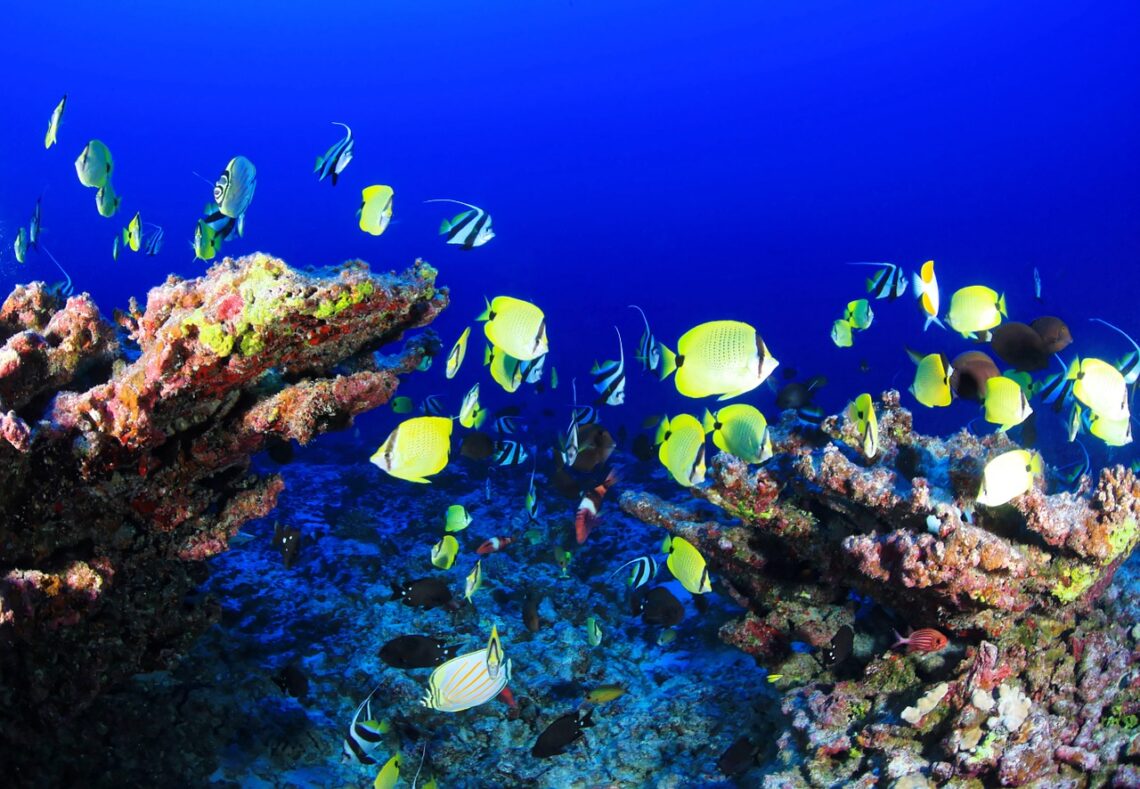Florida is the only state in the continental U.S. with shallow reef formations near the coast. These reefs are home to many unique species of fish, which in turn invite tourism and business to the state.
However, the livelihood of these fish and the many benefits they offer are now being threatened by overfishing.
A recent study has discovered that 85% of popular grouper and snapper species in the South Florida reef system have fallen below sustainable numbers. The study included a total of 15 species and targeted those that are most popular among fishermen, divers and restaurants.
This research was conducted by a team at the University of Miami Rosenstiel School of Marine and Atmospheric Science Administration. The lead scientist, Dr. Jerald Ault, has been performing research surrounding the sustainability of the reef for decades.
Ault has essentially used various research methods to estimate the population sizes of different species very precisely. He and his team pay close attention to what fisheries and other people on the water take out of the ocean and then work to determine if the remaining fish will be able to respawn and sustain their population.
“Fish populations are a lot like a forest. I can cut down some of it and it will regrow and be sustainable, meaning I can get whatever the benefits are. So the question becomes, when do I start exceeding the natural productive capacity of the resource?” Ault said to the Florida Political Review.
If changes are not made soon, the species mentioned in the research could become commercially extinct. This means there would be so few members of the species left that it would cost more to collect resources and go catch one than the value of the fish.
This has become a serious danger due to the exploding population in South Florida.
Overfishing also poses further threats, such as damaging the ecosystems of the reef, threatening businesses that rely on these fish populations and possibly causing the complete extinction of vulnerable species.
According to the research, action needs to be taken by the state and federal bodies that regulate overfishing. “The problem is so serious, and it needs some attention right now. We are at risk of seeing a system implode,” said Ault.
Neither the federal nor state organizations that handle the protection of fish have jumped into action as Ault had hoped. The Florida Fish and Wildlife Conservation Commission has come out and said they plan to continue using their collaborative assessment process that examines species across the entire Southeast Atlantic or the Gulf of Mexico, not just in the reef area.
This assessment has been used for two decades now, but it fails to examine nine of the species that Ault researched, and the data for some key species has not been updated in the past three years.
Additionally, the National Oceanic and Atmospheric Association has stated that Ault’s research will not be incorporated into the ongoing review of federal management practices for reef fish in South Florida because the study was published recently.
Ault has experienced this kind of pushback before, and he says it is a common problem because federal and state bodies co-manage the reef and the well-being of the animals it sustains.
“One of the difficulties of the coral reef ecosystem has been that the feds look at it and say ‘Well, that’s inshore, that must be a state responsibility,’ and the state looks at it and says ‘Well, that’s offshore, that must be a federal responsibility’,” said Ault.
Jackie Marks, a contact from the Marine Stewardship Council, offers a perspective on solutions outside of the government. The MSC is a non-profit organization that focuses on spreading awareness about overfishing and encouraging consumers to buy seafood that has been fished sustainably.
“Governments cannot do it alone—collaboration with NGOs, industry scientists and others is necessary to ensure diverse viewpoints are considered and sustainable solutions are developed,” Marks wrote to the Florida Political Review.
One way that the MSC has tried to lessen the effects of overfishing is by helping fisheries learn sustainable practices and then putting the MSC blue fish label on products from those fisheries. Consumers are encouraged to buy products with the blue label to protect these fish species.
By using these methods, the MSC is developing practical methods to apply the research published by Ault and other overfishing experts. However, in severe cases such as these, government involvement is still necessary.
Moving forward, Ault and his team will do their best to convey the seriousness and urgency of the declining reef fish populations they have observed. Science was able to determine the problem, and now decision-makers like government officials are responsible for workshopping a solution.
According to Ault, “What I would like to see is that we have strong communication between the science groups and those in a decision-making capacity.”
Ideally, every species in the reef system would be kept at a sustainable population and the South Florida economy would not have to suffer under new regulations. It will be up to the combined efforts of the scientific and political realms to create a solution that allows for the best possible outcomes for the overfishing crisis.
Check out other recent articles from Florida Political Review here.
Featured image: Many species of reef fish are being threatened by overfishing. Used under a Creative Common license (https://bit.ly/382NtbL).





